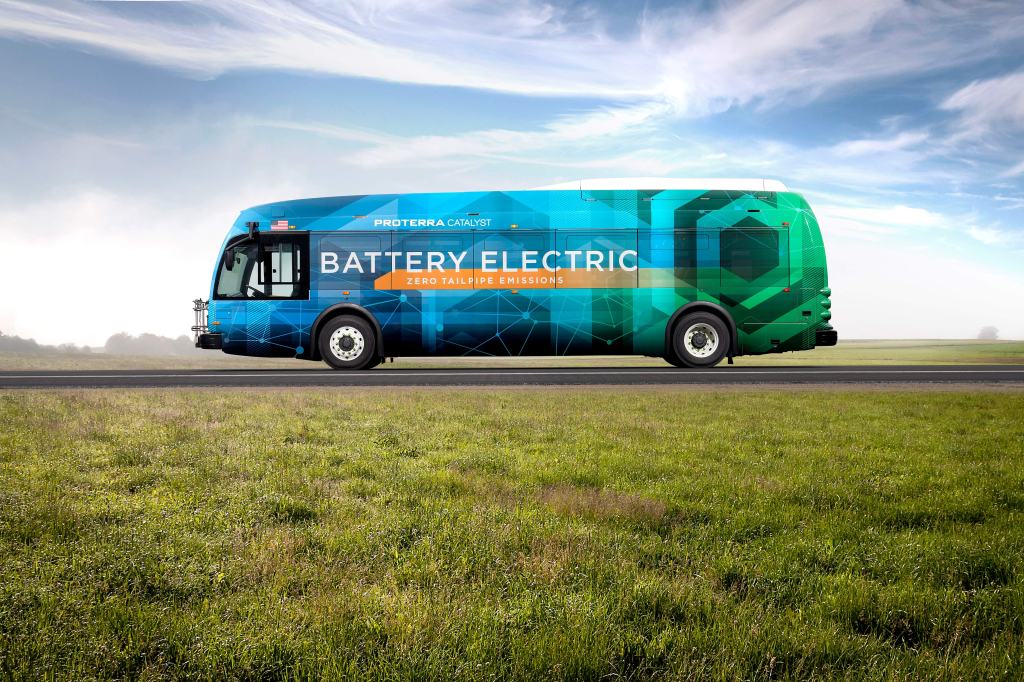Proterra, a company that develops battery systems for buses and other heavy duty EVs, filed for bankruptcy earlier this week, making it the latest in a string of failures in the EV sector.
While some parallels can be drawn between Proterra and other failing or defunct EV companies, this company faces specific headwinds that took it down a rocky financial path.
The bankruptcy filing came as a surprise for many. After all, Proterra was a company that was well-established — certainly no pre-revenue upstart — and a darling in the EV sector. It launched in 2004 as an electric transit bus company, a sector that seemed open for the taking and well positioned for growth. It raised millions from high-profile backers like Daimler and locked in deals with numerous cities. (As of August 2023, the company had delivered more than 1,000 electric transit buses, including 199 new transit buses and 14 pre-owned buses in 2022.)
In 2015, Proterra diversified its business and decided to develop its own battery technology and powertrains. It eventually became a company with three business lines: battery systems called Powered, the Transit unit and a charging infrastructure business called Energy. Software services rounded out the mix. The company’s battery system business unit helped it expand beyond buses and into cargo vans, off-highway equipment that’s used in construction and mining, and even Class 8 semi-trucks. It has since installed more than 100 megawatts of heavy-duty EV charging infrastructure to support commercial vehicle fleets across North America.
Things were going well enough that it went public in 2021 via a merger with special purpose acquisition company, in a deal was valued at $1.6 billion.
So, how did Proterra wind up filing for Chapter 11 bankruptcy protection?
A tightening capital market didn’t help. Proterra burned through capital as it tried to scale its three businesses simultaneously.
And then there are the special problems associated with companies that try to make a profit through sales to cities, and specifically transit agencies.
Deals with transit agencies, which rely on federal and state funding, are slow to finalize and budgets are tight, which can mean reducing the price of a product to win a bid. That doesn’t help margins.
On top of that pressure, Proterra doesn’t recognize revenue until it delivers those buses. Inflation rose in the meantime, further cutting into its margins. Contracts are typically signed 12 to 18 months prior to bus manufacturing, Proterra said in a day one declaration filing with the U.S. Bankruptcy Code in the District of Delaware. “Contracts signed in 2021 proved to be priced below where the manufacturing costs were ultimately realized in 2022,” the company noted.
Making the situation even worse? Supply chain constraints, which led to delays significant enough that Proterra ended up paying penalties to contract supplier TPI Composites. Proterra said in the filing it was able to renegotiate the TPI contract to lessen the penalties to some degree, but it still faced liabilities from an inability to accept the agreed-upon bus body minimums. Proterra and TPI also faced penalties for delivering buses late to its customers.
Atop all of these challenges, one of the bigger issues — and one that existed long before the economic conditions changed — are the special needs of transit agency customers. Every transit agency has different requirements for its buses, meaning every bus contract can have vastly different manufacturing requirements than the one before.
“These transit agencies demand highly customized buses that align with the other buses in their respective fleets,” Proterra wrote in the filing. “Therefore, the manufacturing process requires much customization, which makes scaling the business difficult and requires an extensive amount of working capital.”
Proterra still intends to continue as a business. Its hope — stated when it voluntarily filed for protection under Chapter 11 — is that the move will “strengthen its financial position” through a recapitalization or going-concern sale.
“The reorganization is intended to maximize the value of each independent business line,” said Proterra spokesperson Shane Levy told TechCrunch, noting that it’s in progress and the end result is unclear.
The company said it will continue operations and will make a request to the bankruptcy court to use existing capital to pay employee salaries and compensating vendors and suppliers.
In the meantime, Proterra has canceled its earnings call scheduled for August.
The company said that Moelis & Company LLC is acting as Proterra’s investment banker, FTI Consulting as financial advisor, and Paul, Weiss, Rifkind, Wharton & Garrison LLP as legal advisor.































Comment